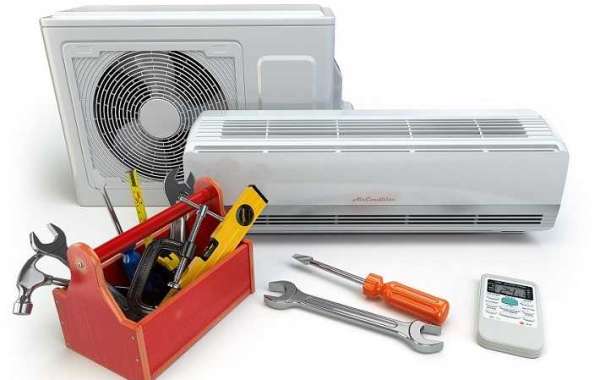Air conditioners have become an essential part of our lives, providing comfort during hot summer days and improving the overall indoor air quality. However, installing an air conditioner involves more than just purchasing the unit and placing it in your home. Understanding air conditioner installation permits and regulations is crucial to ensure compliance with local laws and regulations while ensuring the safety and efficiency of the installation. In this article, we will delve into the details of air conditioner installation permits and regulations, providing you with the necessary knowledge to navigate this process successfully.
Why are Air Conditioner Installation Permits and Regulations Important?
Air conditioner installation permits and regulations exist to safeguard homeowners, ensure the proper installation of equipment, and maintain the integrity of the electrical and HVAC systems. By obtaining the required permits and following the regulations, you can ensure that the installation is carried out by licensed professionals who adhere to safety standards. Moreover, compliance with these regulations helps prevent potential hazards such as electrical fires, gas leaks, or structural damage. By understanding and adhering to air conditioner installation permits and regulations, you can have peace of mind knowing that your system is installed correctly and poses no risks to you or your property.
The Role of Permits in Air Conditioner Installation
Understanding the Permitting Process
Before proceeding with an air conditioner installation, it is essential to understand the permitting process. The process may vary depending on your location, so it is crucial to consult with your local building department or permit office. Typically, the process involves the following steps:
Researching Permit Requirements: Research the specific permit requirements for your area. This may include submitting an application, providing project details, and paying a permit fee.
Preparing Documentation: Gather all the necessary documentation, such as equipment specifications, installation plans, and proof of contractor's license and insurance.
Submitting the Application: Submit the completed application along with the required documentation to the appropriate permitting authority. Ensure that the application is accurate and complete to avoid delays.
Approval and Inspection: Once the application is approved, schedule an inspection with the permitting authority. The inspector will evaluate the installation to ensure compliance with local codes and regulations.
Final Approval: Upon successful inspection, you will receive final approval for your air conditioner installation.
Benefits of Obtaining Permits
While obtaining permits may seem like an additional hassle, it offers several benefits:
Legal Compliance: By obtaining permits, you comply with local laws and regulations, avoiding potential penalties and legal issues.
Safety Assurance: The permitting process ensures that the installation is carried out by licensed professionals who follow safety standards, reducing the risk of accidents or hazards.
Insurance Coverage: In case of any damage or malfunction caused by the air conditioner installation, having the necessary permits may help you validate insurance claims.
Understanding Air Conditioner Installation Regulations
Electrical Regulations
Electrical regulations play an important role when it comes to air conditioner installation in Darwin. These regulations are in place to ensure the safe and proper wiring of air conditioning systems. Some of the major electrical rules include:
Circuit Breaker Requirements: Air conditioners require dedicated circuits with appropriate ampacity and circuit breaker ratings to handle the electrical load safely.
Grounding and Bonding: Proper grounding and bonding of the air conditioner system are essential to protect against electrical shock and minimize the risk of electrical fires.
Disconnect Switch: A disconnect switch is required to provide a safe means of shutting off power to the air conditioner for maintenance or emergencies.
Zoning and Building Regulations
In addition to electrical regulations, zoning and building regulations also come into play during air conditioner installation. These regulations ensure that the installation meets specific criteria regarding location, setbacks, and aesthetics. Some common zoning and building regulations include:
Setback Requirements: Setback requirements determine how close the air conditioner can be installed to property lines, buildings, or other structures.
Noise Restrictions: Some areas have specific noise restrictions that dictate the maximum noise levels allowed for air conditioning units, ensuring minimal disturbance to neighbors.
Aesthetic Considerations: Certain neighborhoods or communities may have aesthetic guidelines, requiring air conditioner installations to be concealed or placed in specific locations to maintain the overall appearance.
Frequently Asked Questions (FAQs)
- Are permits always required for air conditioner installation?
Yes, in most cases, permits are required for air conditioner installation. However, the specific requirements may vary depending on your location and the type of installation.
- Can I install an air conditioner without a permit?
Installing an air conditioner without the necessary permits is not recommended. Doing so may lead to legal consequences, invalidation of warranties, and potential safety hazards.
- How much does an air conditioner installation permit cost?
The cost of an air conditioner installation permit varies depending on your location and the scope of the project. It is best to check with your local permitting authority for the specific fee structure.
- Who is responsible for obtaining the permit, the homeowner or the contractor?
Typically, it is the responsibility of the homeowner to obtain the permit. However, some contractors may offer permit acquisition services as part of their installation package. It is essential to clarify this with your chosen contractor.
- What happens if I fail the inspection?
If your air conditioner installation fails the inspection, you will need to rectify the identified issues before requesting a re-inspection. It is crucial to address the concerns raised by the inspector to ensure compliance with regulations.
- Can I hire an unlicensed contractor for air conditioner installation?
Hiring an unlicensed contractor for air conditioner installation is risky and strongly discouraged. Licensed contractors are qualified professionals who have undergone the necessary training and meet the safety standards required for the installation.
Conclusion
Understanding air conditioner installation permits and regulations is essential for a successful and compliant installation process. By obtaining the necessary permits and adhering to the regulations, you ensure the safety, efficiency, and legal compliance of your air conditioner installation. Remember to research the specific requirements for your location, consult with professionals when needed, and always prioritize safety when installing or upgrading your air conditioning system.










